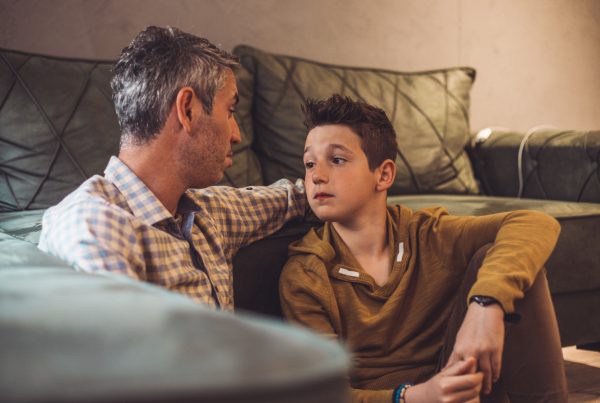Top Ten List for Better Communication with Teens:
Most of these are common sense, but we forget to address the obvious when we are busy with our own lives
1. Remember that during adolescence, communication generally decreases and a child will confide less in parents. This is a fairly normal process, so parents should not overreact.
2. Listen to what is being said; that is, try to understand the teenager’s feelings and where they are coming from.
3. Stop what you are doing and look at your teenager. Listen when they speak to you. Put the cell phone away for a minute and stop texting.
4. Be sure most of your communication is positive, not negative. Don’t dwell on mistakes, failures, misbehaviors, or something they forgot to do. Give them positive communication and talk about their successes, accomplishments, interests, and appropriate behavior. Modeling appropriate behavior is also a plus.
5. Talk to them about their interests (e.g., music, sports, computers, cars). Have conversations with them without having to make a point, teach them something, or impress them. Talk to them just to talk and to have positive verbal interaction.
6. Avoid talking too much – giving long or too-detailed explanations, repeating lectures, questioning excessively, or using other forms of communication that will result in the teenager turning a deaf ear to you.
7. Try to understand your teen’s feelings. You do not have to agree or disagree with them; just make him aware that you understand how they feel. There are times when you do not have to fix things in order to make them feel better. Again: LISTEN!
8. Do not overreact to what is said. Remember, sometimes teenagers say things that are designed to get a reaction from their parents. In addition, do not say “no” too fast. Sometimes it is better to think about the request and give a response later. In other words, think before you open your mouth.
9. Try to create situations in which communication can occur (driving to the doctor’s appointment, having the teenager help you with household tasks, eat dinner together!). You have to be physically close to the teenager for communication to occur. A television in the adolescent’s room can be an additional barrier to family communication. Whenever possible, the parent should try to do things with the teenager, rather than separately. Although the child may not frequently accept them, provide opportunities for him to do things with you.
10. Try to avoid power struggles, confrontation, and arguing matches. Your goal should be to have the communication move toward a compromise situation, rather than a battle. When appropriate, involve the teenager in decision making and setting realistic and enforceable consequences for his or her behavior. Make sure that they understand that you are the parent.






